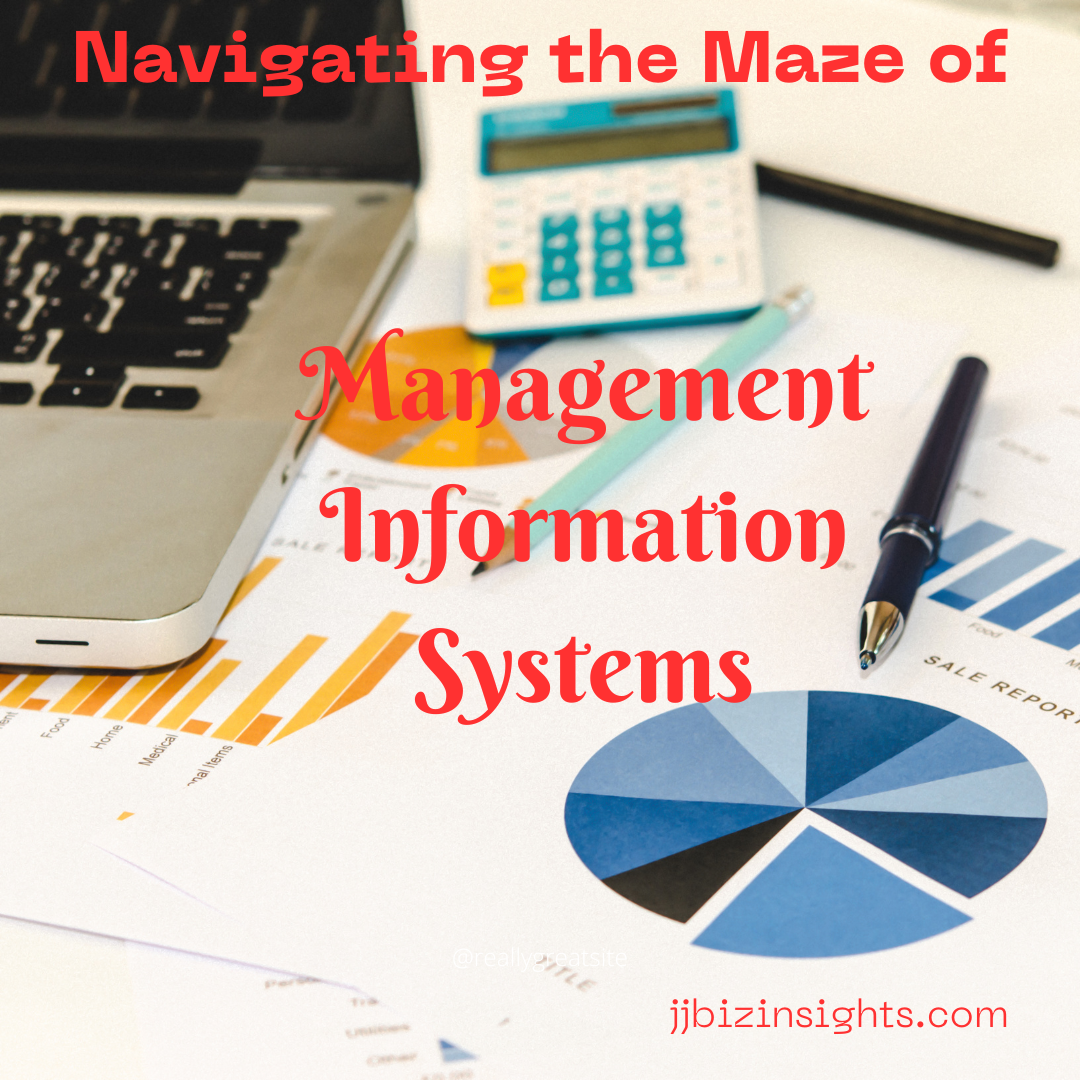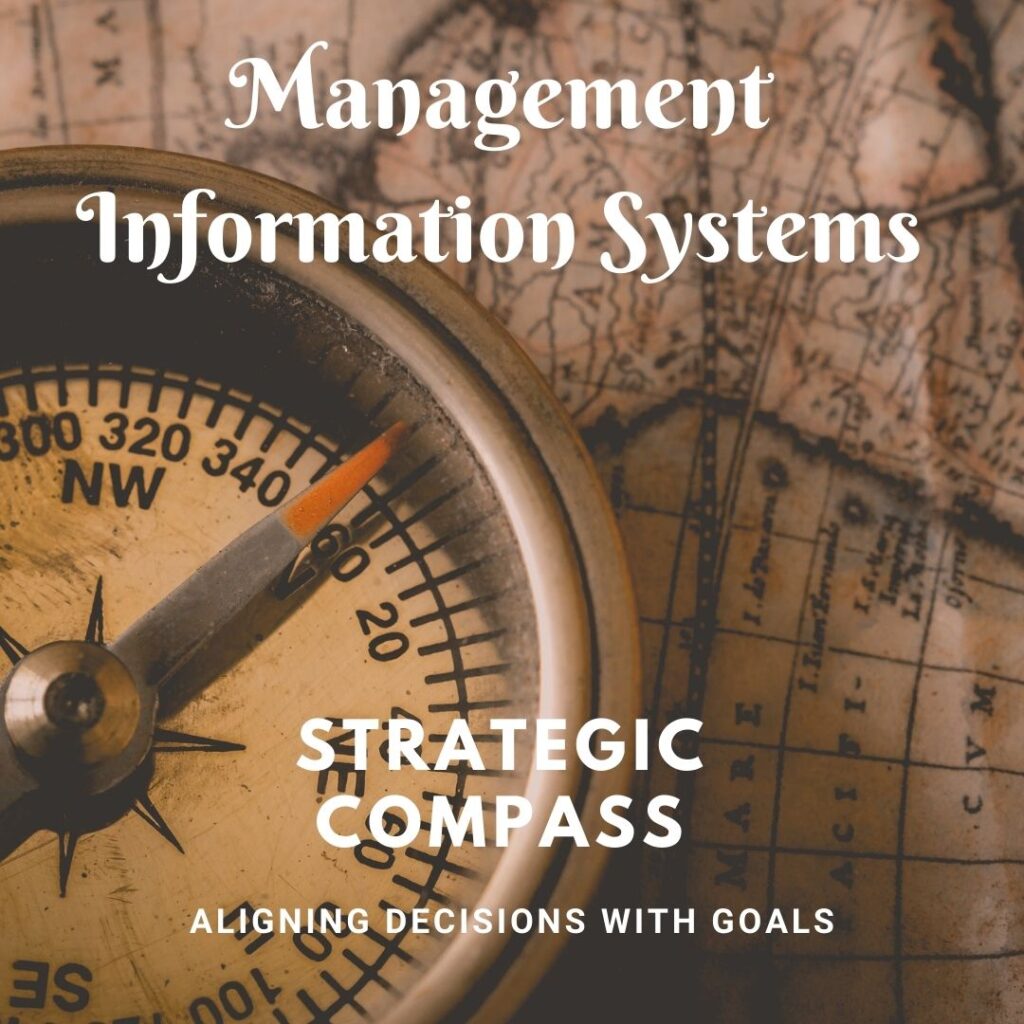
Navigating the Maze of Management Information Systems
Unleash the Power of Information: Navigating the Maze of Management Information Systems (MIS). In today’s data-driven world, businesses swim in a sea of information. But without the right tools, navigating this ocean can be overwhelming. Enter the mighty Management Information System (MIS): your captain and compass on the voyage to informed decisions, optimized operations, and ultimately, success.
So, what exactly is an MIS? Think of it as the brain trust of your business, meticulously gathering, analyzing, and presenting vital data to empower smart decision-making. From tracking sales figures to monitoring inventory levels, an MIS serves as your one-stop shop for crucial insights across every department.
But how do you know if your MIS is truly shining a light on your path? Here are the essential features of a gold-standard MIS:

1. Management Information Systems: Accuracy and Timeliness: Steer Clear of the Data Fog
Imagine making critical decisions based on a faulty map. Not exactly a recipe for success, right? That’s why data accuracy and real-time updates are non-negotiables in a good MIS. Ensure your system delivers reliable, consistent information, always reflecting the most current state of your business.
2. User-Friendly Interface: No Tech Degrees Required
Even the most powerful ship is useless if nobody can navigate it. Your MIS should be intuitive and user-friendly, allowing everyone, from executives to frontline staff, to extract insights effortlessly. Think clear dashboards, customizable reports, and easy-to-understand visualizations.
3. Management Information Systems: Strategic Compass: Aligning Decisions with Goals

Data on its own is just a jumble of numbers. An effective MIS connects the dots, aligning the information it provides with your specific business goals and objectives. This way, every decision you make is like adjusting the sails, propelling your company towards its desired destination.
4. Performance Powerhouse: Monitoring and Measurement Matter
Just like a captain tracks the ship’s progress, your MIS should help you measure key performance indicators (KPIs). This allows you to identify areas for improvement, celebrate successes, and stay on course towards achieving your strategic goals.
5. Management Information Systems: Future-Proofing Your Voyage: Scalability and Security

Your business is bound to grow, so your MIS should too. Choose a system that can scale alongside your needs, accommodating an expanding workforce and increasingly complex data loads. Remember, robust security is also crucial to keeping your valuable information safe and sound.
MIS is more than just a buzzword; it is a potent weapon in your business arsenal. By prioritizing these key features, you can unlock the power of information, make informed decisions, and navigate the competitive waters with confidence. Remember, in the realm of business, knowledge is truly power, and a well-equipped MIS is the key to unlocking its full potential.
Empowering Businesses with Data: A Deep Dive into Management Information Systems (MIS)
“Empowering Businesses with Data: A Deep Dive into Management Information Systems (MIS)” is an excellent article from Michigan Technological University that dives into the world of MIS and its importance in today’s digital age.
In today’s digital age, organizations thrive on information, the lifeblood of smart decisions and efficient operations. Enter Management Information Systems (MIS): the bridge between business and technology, empowering companies to harness the power of data.
But what exactly is MIS? Imagine it as your trusted advisor, expertly gathering, analyzing, and presenting vital data to propel your informed decision-making and strategic planning. From tracking sales figures to streamlining inventory management, MIS acts as your one-stop shop for crucial insights across departments.
What makes a gold-standard MIS? Here are some key features:

- Accuracy and Timeliness: Reliable, real-time data ensures you’re basing decisions on a true and current picture of your business.
- User-Friendly Interface: Everyone, from executives to frontline staff, should effortlessly navigate and extract insights from the system.
- Strategic Alignment: Data should be directly relevant to your goals and objectives, guiding your decisions towards achieving them.
- Performance Measurement: Track key performance indicators (KPIs) to identify areas for improvement and celebrate successes.
- Scalability and Security: Choose a system that adapts to your growth and keeps your valuable information safe and secure.
MIS empowers you to:
- Digitize work processes and manage a remote workforce effectively.
- Specialize in data analysis, software development, or business strategy and operations.
- Adopt and develop computerized systems tailored to specific business domains.
- Manage projects and think strategically about technology adoption.

What do Information System Professionals do? They act as crucial bridges within organizations, translating business needs into technical solutions and vice versa. Their diverse roles include:
- Data Analysts and Database Administrators: Ensuring data accessibility and presentation for informed decision-making.
- Business and Systems Analysts: Working with business professionals to improve processes through technology adoption.
- Project Managers: Leading teams to develop and implement new information systems.
- Cybersecurity and Software Development Specialists: Protecting data and creating business-oriented software solutions.
MIS careers are booming! The U.S. Bureau of Labor Statistics expects them to grow 16% by 2031. With opportunities in various industries, MIS graduates can specialize in areas like artificial intelligence, automation, and blockchain technologies, shaping the future of business.
Interested in diving deeper? Explore Michigan Technological University’s Management Information Systems program to unlock the power of data in your future career!
Set sail with the power of information at your helm. Bon voyage!
Data Dive: Dive Deep into Marketing Measurement for Powerful Decisions
Don’t Let Your Budget Blind You: See Growth with Data-Driven Insights





